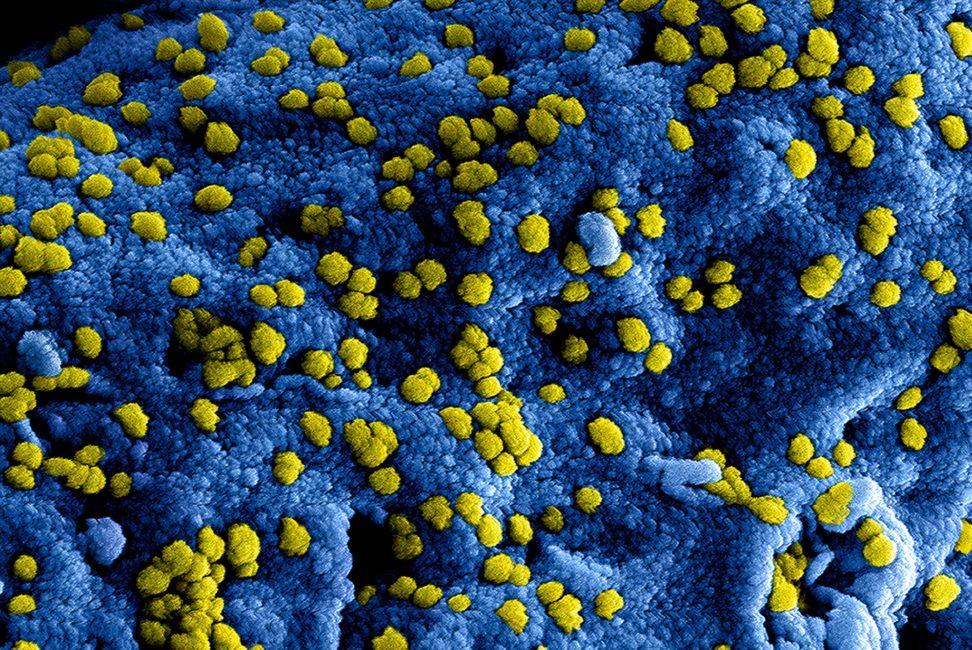February 21, 2023: “AstraZeneca will showcase new data across its Vaccines and Immune Therapies Respiratory Syncytial Virus (RSV) portfolio at the 7th Respiratory Syncytial Virus Foundation (ReSViNET) Conference in Lisbon, Portugal from 22-24 February 2023, reinforcing its commitment to help protect infants from RSV.
The Company is set to present five abstracts and posters at the event, including new data featuring Beyfortus (nirsevimab) and Synagis (palivizumab).
Iskra Reic, Executive Vice President, Vaccines and Immune Therapies, AstraZeneca, said: “I am proud of AstraZeneca’s commitment to respiratory syncytial virus (RSV) and our continued focus on innovating antibodies to provide protection to the most vulnerable.
We believe that Beyfortus has the potential totransform the medical community’s approach to preventing RSV infections in infants, and this is of particular importance given the recent surges of the virus amongst infants this past winter season.”
Underscoring the continued need for RSV protection
AstraZeneca is working with the global clinical community to advance the understanding of RSV and is partnering with the ReSViNET Foundation to create the first global RSV surveillance dashboard set to launch in March 2023.
RSV is a highly contagious virus that causes respiratory illness in infants, including lung infections such as bronchiolitis and pneumonia.
This seasonal respiratory virus is the most common cause of lower respiratory tract infections and a leading cause of hospitalisation in infants.1-5
Dr. Louis Bont, Pediatrician Infectologist at the Wilhelmina Children’s Hospital in the University Medical Center Utrecht, The Netherlands, and the founder and chairman of ReSViNET, said: “The ReSViNET Foundation’s new dashboard will make it easier and more accessible to track worldwide changes in RSV seasonality, helping clinicians to protect babies and prevent the rise in hospitalisations that RSV can cause.”
Pursuing a breakthrough for broad RSV prevention
AstraZeneca is presenting the safety and efficacy findings from the full cohort of the Phase III MELODY clinical trial investigating Beyfortus in healthy late preterm and term infants (35 weeks gestational age or greater) entering their first RSV season.
These data reinforce Beyfortus’ consistent efficacy across endpoints and studies with approximately 70-80% efficacy against medically attended RSV lower respiratory tract infections vs placebo, including hospitalisations.
New cost effectiveness data for high-risk infant protection
Synagis continues to build on 25 years of real-world usage with a new cost effectiveness analysis being presented at ReSViNet.
This analysis is the first to incorporate the International Risk Scoring Tool, which helps clinicians identify pre-term infants with the highest risk of hospitalisation.
Key AstraZeneca presentations during ReSViNet Conference 2023
| Abstract title | Presentation details |
|---|---|
| Safety and efficacy of nirsevimab for prevention of medically attended RSV lower respiratory tract infection in all infants enrolled in the Phase III MELODY trial | Oral presentation #35; Session III: (Thursday 23 February, 11:40am-1pm) EPIC SANA Lisboa Hotel, Morus Hall |
| Safety and pharmacokinetics of nirsevimab for prevention of RSV disease in children with congenital heart disease or chronic lung disease of prematurity | Poster #127; EPIC SANA Lisboa Hotel, Foyer |
| Fc mediated function of nirsevimab complements direct RSV neutralisation but is not required for optimal protection in preclinical models | Poster #184; EPIC SANA Lisboa Hotel, Foyer |
| Genotypic and phenotypic features of RSV infections in MEDLEY, a randomised double-blind Phase III study of nirsevimab in children at high risk of severe disease | Poster #170; EPIC SANA Lisboa Hotel, Foyer |
| New cost-effectiveness analysis of palivizumab for the prevention of RSV infection in otherwise healthy Canadian infants born 29-35 weeks’ gestational age (wGA) | Poster #155; EPIC SANA Lisboa Hotel, Foyer |


